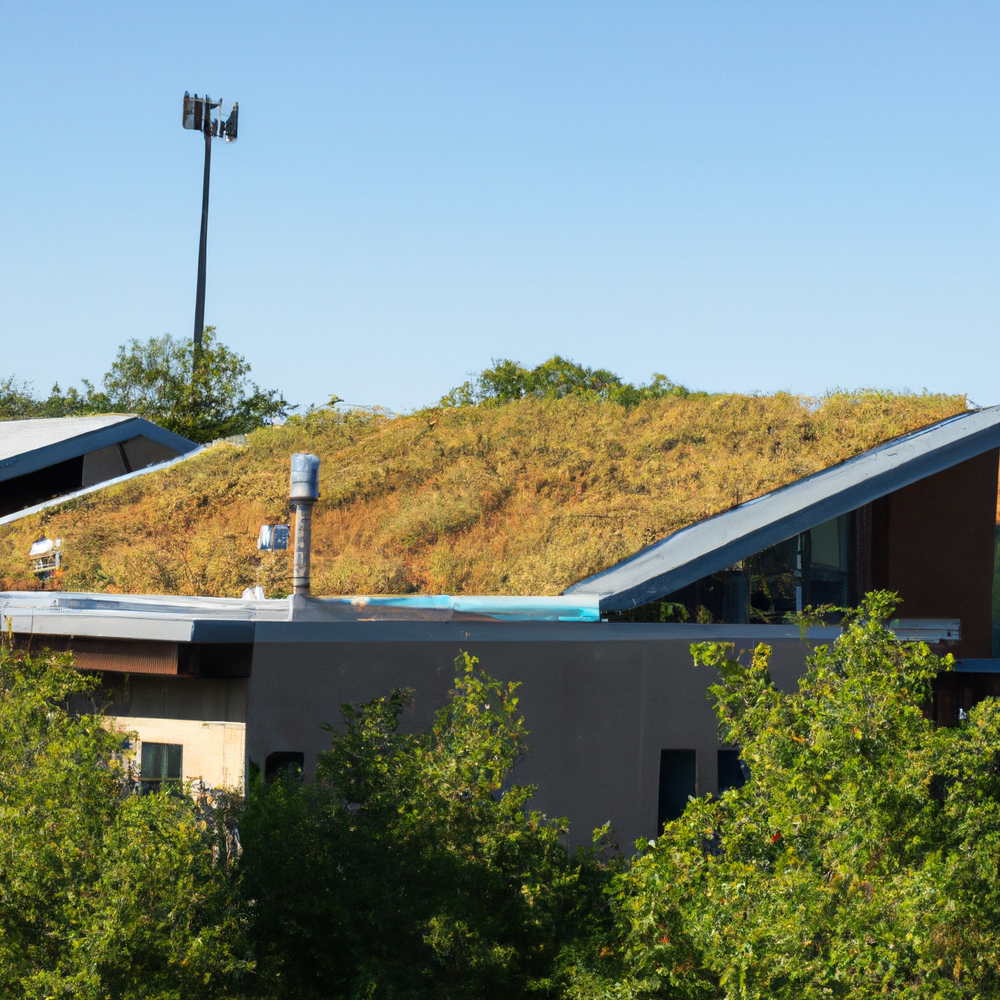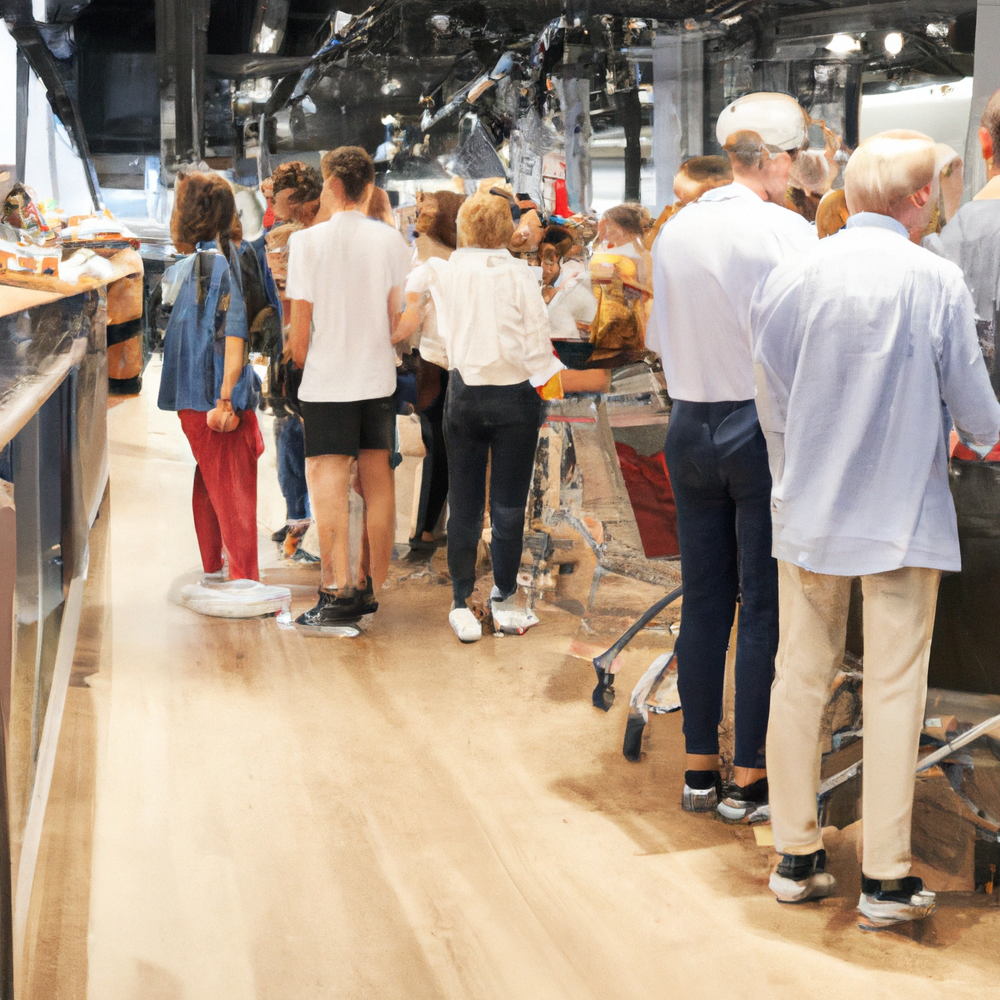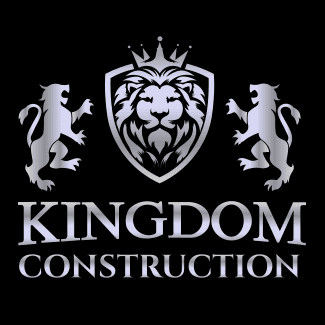Why Is Quality Commercial Roofing Important?
Commercial roofing plays a crucial role in protecting commercial buildings, ensuring the safety and integrity of the entire structure. It serves as the first line of defense against various environmental elements, including rain, heat, snow, wind, and UV rays. A well-maintained and properly installed commercial roof helps prevent water leaks, structural damage, and potential hazards to occupants and all of your valuable assets inside the building.

Beyond protection, commercial roofing also contributes to energy efficiency. A well-insulated and properly sealed roof helps regulate indoor temperature, reducing the reliance on heating and cooling systems. This, in turn, can lead to significant cost savings on energy bills and a more sustainable environmental footprint.
Moreover, commercial roofing plays a vital role in the aesthetic appeal and overall image of a business. A well-designed and visually appealing roof can enhance the building's exterior appearance, making a positive impression on clients, customers, and visitors.
Given its importance, regular inspections, maintenance, and timely repairs are essential to ensure the longevity and functionality of commercial roofs. By investing in quality roofing materials, professional installation, and ongoing care, businesses can protect their investments, maintain a comfortable indoor environment, and project a positive image to the outside world.
Building owners often have a lot of questions about their commercial roofing needs, and we are here to answer them.
Table of Contents Quick Links
Types of Commercial Roofing Materials
- Overview
- Pros and Cons
- Factors To Consider
How Long Does A Commercial Roof Last?
- Average Lifespan
- Factors Affecting Lifespan
Signs A Commercial Roof Needs Repair or Replacement
- Common Indicators Of Problems
- Importance Of Addressing Them Promptly
Energy Efficient Commercial Roofing
- Importance Of Energy Efficiency
- Strategies For Enhancement
Commercial Roofing Inspections
- Recommended Frequency
- Benefits of Inspections
Repair Or Replace A Commercial Roof
- Factors to Consider
- When To Repair
- When To Replace
Is A Professional Roofing Contractor Necessary?
- Importance Of Hiring A Professional
- Expertise And Equipment
Budgeting for Commercial Roofing
- Factors Influencing Cost
- Planning And Tips For Budgeting
What types of commercial roofing materials are there?
When it comes to commercial roofing, there are several common materials to consider. Here's an overview of each material, along with their pros and cons, and factors to consider for selecting the right one for your commercial property:
Overview of Common Roofing Materials
TPO (Thermoplastic Polyolefin): Known for its energy efficiency, durability, and ease of installation.
EPDM (Ethylene Propylene Diene Terpolymer): A synthetic rubber roofing membrane with excellent weather resistance.
Metal Roofing: Offers long lifespan, durability, and a wide range of design options.
Modified Bitumen: Consists of asphalt and modifiers, providing enhanced flexibility and resistance to extreme temperatures.
Pros and Cons of Each Commercial Roofing Material
TPO: Energy efficient, heat-reflective, and resistant to UV radiation. However, it can be prone to punctures and usually requires more regular maintenance.
EPDM: Excellent durability, weather resistance, and low maintenance. However, it can be susceptible to punctures and may require additional insulation for energy efficiency.
Metal Roofing: Long lifespan, high durability, and fire resistance. However, it can be costlier upfront and may require specialized installation.
Modified Bitumen: Offers good flexibility, weather resistance, and affordability. However, it may require additional maintenance and can be sensitive to UV radiation.
Factors to Consider For Your Commercial Roof
Climate: Choose a material that can withstand the local climate conditions, such as heat, cold, rain, or high winds.
Budget: Consider the upfront cost, long-term maintenance, and potential energy savings to align with your budget.
Building Design and Purpose: Assess the architectural style, desired aesthetics, and functional requirements of your commercial property.
Durability and Lifespan: Evaluate the expected lifespan of each material and weigh it against your long-term needs.
Maintenance and Repair: Determine the level of maintenance required and the availability of qualified professionals for repairs.
By considering these factors and understanding the pros and cons of different commercial roofing materials, you can make an informed decision that aligns with your specific needs and preferences. Consulting with a professional roofing contractor can also provide valuable insights and guidance in selecting the right material for your commercial property.
How long does a commercial roof typically last?
How long a commercial roof lasts can vary depending on several factors, including the type of roofing material, maintenance practices, climate conditions, and installation quality. Here's an overview of the average lifespan of various commercial roofing materials and factors that can impact their longevity:
Average Lifespan of Commercial Roofing Materials
- TPO (Thermoplastic Polyolefin): Approximately 20-30 years.
- EPDM (Ethylene Propylene Diene Terpolymer): Typically lasts 20-25 years.
- Metal Roofing: Can have a lifespan of 40-70 years, or even more with proper maintenance.
- Modified Bitumen: On average, lasts around 20-30 years.
It's important to note that these are general estimations, and actual lifespan can vary based on specific product quality, installation techniques, and environmental factors.
Factors Affecting Your Roof's Lifespan
- Maintenance: Regular inspections, timely repairs, and proper maintenance routines can significantly extend the lifespan of a commercial roof.
- Climate: Extreme weather conditions, such as high temperatures, heavy rain, snow, or strong winds, can impact the longevity of roofing materials.
- Installation Quality: The skill and expertise of the roofing contractor during installation play a crucial role in the long-term performance of the roof.
- Roof Design and Slope: The design and slope of the roof can affect how well it sheds water, withstands wind, and resists other environmental factors.
- Roof Ventilation: Adequate ventilation helps regulate temperature and moisture levels, preventing premature deterioration of the roofing system.
- Roof Usage: Rooftop equipment, foot traffic, and the presence of HVAC units or other installations can affect the wear and tear on the roof.
To maximize the lifespan of a commercial roof, regular inspections by professional roofing contractors are essential. They can identify and address potential issues early on, ensuring proper maintenance and necessary repairs. Additionally, adhering to manufacturer recommendations, implementing preventive measures, and promptly addressing any roofing concerns can help extend the life of your commercial roof.
What are signs that a commercial roof needs repair or replacement?
Recognizing signs of roof issues is crucial for timely repairs or potential replacement. Here are common indicators that commercial roofing may need attention.
Common Indicators of Roof Issues
- Leaks: Water stains, dripping water, or noticeable moisture in the building.
- Water Stains: Discoloration or water spots on the ceiling or walls.
- Visible Damage: Cracked, blistered, or missing shingles/tiles, or damaged membrane.
- Sagging or Uneven Areas: Areas where the roof appears uneven or has a sagging appearance.
- Increased Energy Costs: Sudden spikes in heating or cooling expenses due to compromised insulation or ventilation.
- Mold or Mildew Growth: Presence of mold, mildew, or musty odors, indicating moisture intrusion.
- Pooled Water: Accumulated water on the roof, which can lead to structural damage or leaks.
- Roof Age: If the roof has exceeded its expected lifespan, it may be more prone to issues.
Importance of Addressing Roofing Problems Promptly
Addressing roofing problems promptly is essential to prevent further damage and potential risks, including:
- Protecting the building's interior and contents from water damage.
- Preventing structural damage, such as rotting wood or compromised integrity.
- Avoiding mold growth, which can negatively impact indoor air quality and occupants' health.
- Mitigating potential safety hazards, such as slippery surfaces or weakened structures.
- Minimizing business disruptions caused by leaks, repairs, or the need for emergency measures.
- Potentially reducing repair costs by addressing issues early before they worsen.
Regular roof inspections and maintenance by professional roofing contractors are crucial to identify signs of damage or potential issues early on. Promptly addressing any problems identified can help extend the lifespan of the roof, protect the building, and maintain a safe and secure environment for occupants.
How can energy efficiency be improved in commercial roofing?
Improving energy efficiency in commercial roofing is not only environmentally conscious but can also lead to significant cost savings on energy bills. Consider the following strategies to enhance energy efficiency.
Importance of Energy-Efficient Commercial Roofing
Energy-efficient roofing reduces heat absorption, lowers cooling demands, and contributes to a comfortable indoor environment. Benefits include:
- Reduced energy consumption and lower operating costs.
- Enhanced thermal comfort for occupants.
- Decreased strain on HVAC systems, potentially extending their lifespan.
- Potential eligibility for energy efficiency incentives or certifications.
Strategies for Enhancing Energy Efficiency:
- Reflective Roof Coatings: Applying reflective coatings, such as white or light-colored membranes, can reflect sunlight and reduce heat absorption, thereby lowering cooling demands.
- Insulation: Adequate insulation helps regulate temperature, reduces heat transfer, and improves energy efficiency. Consider insulation options suitable for the roofing system, such as spray foam, rigid board, or blown-in insulation.
- Cool Roof Systems: Install cool roof systems designed to reflect more sunlight and absorb less heat. These systems typically consist of highly reflective materials that minimize heat gain.
- Daylighting: Utilize skylights, solar tubes, or translucent panels to introduce natural daylight into the building, reducing the need for artificial lighting during the day.
- Roof Ventilation: Proper roof ventilation promotes airflow, prevents heat buildup, and reduces moisture accumulation, enhancing energy efficiency and prolonging the roof's lifespan.

- Green Roofing: Consider green roof systems with living vegetation, which can provide insulation, reduce heat island effect, and improve energy efficiency.
- Regular Maintenance: Ensure regular inspections and maintenance of the roofing system to identify and address any issues that could compromise energy efficiency, such as damaged insulation or gaps.
By implementing these strategies, commercial property owners can make substantial progress in improving energy efficiency, reducing environmental impact, and enjoying long-term cost savings. Consulting with a professional roofing contractor experienced in energy-efficient solutions can provide tailored recommendations based on the specific needs and goals of the commercial property.
How often should a commercial roof be inspected?
Regular inspections of commercial roofs are crucial for early detection of issues and ensuring the longevity of the roofing system. Consider the following recommendations:Recommended Frequency for Inspections
- Annual Inspections: It is generally recommended to have a comprehensive roof inspection conducted at least once a year by a professional roofing contractor. This allows for routine assessment of the roof's condition and identification of any potential problems.
- After Severe Weather Events: Following severe weather events, such as storms, high winds, or hail, it is important to schedule an inspection promptly. These events can cause damage that may not be immediately visible but can lead to long-term issues if left unaddressed.
Benefits of Regular Inspections and Early Detection of Issues
Regular roof inspections offer several key benefits:
- Early Problem Detection: Inspections help identify potential issues in their early stages, allowing for prompt repairs or preventive measures to mitigate further damage.
- Extending Roof Lifespan: Timely identification and resolution of issues can prolong the lifespan of the roofing system, reducing the need for premature replacement.
- Cost Savings: Addressing small issues early on is typically more cost-effective than dealing with major repairs or roof failure that could result from neglected problems.
- Enhanced Energy Efficiency: Inspections can identify insulation gaps or issues with ventilation, ensuring optimal energy efficiency and reducing utility costs.
- Compliance and Insurance Requirements: Regular inspections help maintain compliance with building codes and insurance requirements, ensuring coverage and preventing potential liability issues.
Remember that different factors, such as the type of roofing system, climate conditions, and foot traffic, may influence the frequency of inspections. Consulting with a professional roofing contractor can provide guidance on the ideal inspection schedule based on the specific characteristics of your commercial roof.
Can a commercial roof be repaired or does it need full replacement?
Determining whether a commercial roof needs repair or full replacement depends on several factors.
Factors to Consider when Deciding between Repair and Replacement
- Extent of Damage: Evaluate the severity and extent of the roof damage. Minor issues, such as localized leaks or isolated damage, may be suitable for repair, while extensive damage across the roof surface may warrant replacement.
- Age of the Roof: Consider the age of the roof. If it is nearing the end of its expected lifespan or has already exceeded it, replacement may be a more cost-effective and long-term solution.
- Cost Analysis: Assess the cost-effectiveness of repairs versus replacement. Sometimes, continuous repairs can add up, making replacement a more viable option in the long run.
- Overall Roof Condition: Evaluate the overall condition of the roofing system. If there are multiple areas with recurring issues or widespread deterioration, replacement may provide a more reliable and durable solution.
- Building Codes and Regulations: Ensure compliance with local building codes and regulations, as they may dictate the minimum requirements for repairs or necessitate a complete roof replacement.
Situations where Repair is Sufficient and Replacement is Necessary
- Repair: Repairs may be sufficient in the following scenarios:
- Minor leaks or isolated damage that can be effectively addressed without compromising the overall roof integrity.
- Damaged or missing shingles or tiles that can be easily replaced.
- Localized issues caused by specific events or factors that can be repaired without affecting the entire roof system.
- Replacement: Replacement may be necessary in the following situations:
- Extensive and widespread damage across the roof surface.
- Significant aging of the roof where repairs are no longer cost-effective or provide only temporary solutions.
- Structural issues or underlying problems that cannot be effectively resolved with repairs alone.
- Roofing materials or design no longer meeting building codes or energy efficiency standards.
Consulting with a professional roofing contractor is crucial to assess the specific condition of the commercial roof and receive expert recommendations on whether repair or replacement is the most suitable course of action. Their expertise and evaluation will help make an informed decision that ensures the long-term performance and protection of the commercial property.
Do I need a professional roofing contractor for commercial roof repairs?
Yes, it is highly recommended to hire a professional roofing contractor for commercial roof repairs. Here's why:
Importance of Hiring Experienced Professionals
- Expertise and Knowledge: Professional roofing contractors have the necessary expertise and knowledge to assess the condition of commercial roofs accurately. They can identify underlying issues and provide effective repair solutions tailored to the specific roofing system.
- Safety: Commercial roofing can involve working at heights and handling potentially dangerous materials. Professional contractors are trained in safety protocols and have the proper equipment to ensure the safety of themselves and others on the job site.
- Quality Workmanship: Professional contractors are experienced in commercial roofing repairs and are equipped to deliver high-quality workmanship. They have the skills and techniques to execute repairs correctly, ensuring long-lasting results and minimizing the risk of further damage.
- Insurance and Warranty: Reputable roofing contractors carry liability insurance, providing protection in case of accidents or property damage during the repair process. Additionally, they often offer warranties on their work, giving you peace of mind and recourse if issues arise.
Expertise and Specialized Equipment Required for Commercial Roofing
- Commercial Roofing Complexity: Commercial roofing systems are often more complex than residential roofs, involving different materials, designs, and architectural considerations. Professional contractors are familiar with these complexities and have the expertise to handle them effectively.
- Specialized Equipment: Commercial roofing repairs may require specialized equipment, such as safety harnesses, scaffolding, and professional-grade tools. Professional contractors have access to these tools and know how to use them safely and efficiently.
By hiring a professional roofing contractor for commercial roof repairs, you can benefit from their knowledge, experience, safety measures, and access to specialized equipment. They can ensure that repairs are conducted properly, protecting your investment, maintaining the integrity of the roofing system, and extending its lifespan.
How can I budget for commercial roof repairs or replacement?
Budgeting for commercial roof repairs or replacement requires careful consideration of various factors. Here's how you can effectively plan and budget for your commercial roof project:
Factors Influencing Cost
- Size and Complexity: The size and complexity of the roof play a significant role in determining the overall cost. Larger roofs or those with intricate designs may require more materials and labor, increasing the expenses.
- Material Selection: The type of roofing material chosen will impact the cost. Different materials vary in price, durability, and installation requirements.
- Extent of Repairs or Replacement: The extent of repairs needed or the scope of the replacement project will influence the cost. Minor repairs may be more affordable compared to extensive repairs or a complete roof replacement.
- Additional Components: Consider any additional components or features, such as skylights, ventilation systems, or insulation, which may add to the overall project cost.
- Accessibility and Safety Requirements: Accessibility challenges or safety requirements, such as working at heights or special equipment needs, can affect the project cost.
Planning and Budgeting Tips for Commercial Roof Projects
- Get Multiple Quotes: Obtain quotes from several reputable roofing contractors to compare prices, services, and warranties. This helps ensure you receive competitive pricing and select a contractor that meets your budget and requirements.
- Plan for Contingencies: Set aside a contingency fund for unforeseen expenses or additional repairs that may arise during the project. It's wise to allocate around 10-15% of the total budget for contingencies.
- Prioritize Maintenance: Regular roof maintenance can help prolong the lifespan of your commercial roof and minimize the need for major repairs or premature replacement. Allocate a portion of your budget for ongoing maintenance to avoid costly issues down the line.
- Consider Long-Term Cost Savings: While initial costs are important, also consider the long-term cost savings associated with energy-efficient materials or systems. These may have a higher upfront cost but can result in significant energy savings over time.
- Consult with Professionals: Engage with professional roofing contractors to assess your roof's condition, discuss repair options, and provide accurate cost estimates. Their expertise will help you make informed decisions and plan your budget accordingly.
By considering these factors and following these budgeting tips, you can effectively plan and allocate funds for commercial roof repairs or replacement, ensuring a successful project within your financial means.
Your Commercial Roof Is Critical To Your Business
Maintaining a well-functioning commercial roof is of paramount importance for the overall integrity and longevity of your business. Regular maintenance and prompt repairs help identify and address minor issues before they escalate into major problems, saving you significant expenses and potential business interruptions in the long run.
By investing in proactive roof maintenance, you ensure that your commercial space remains secure, comfortable, and conducive to productivity, instilling confidence in your customers, employees, and stakeholders while protecting your valuable assets for years to come.

If your business is in the San Antonio, Austin, Dallas, or Fort Worth area and you need a commercial roof replacement, repair, or just an inspection, we at Kingdom Construction would be honored to speak with you about your needs. Please call or contact us so we can get the process started.
